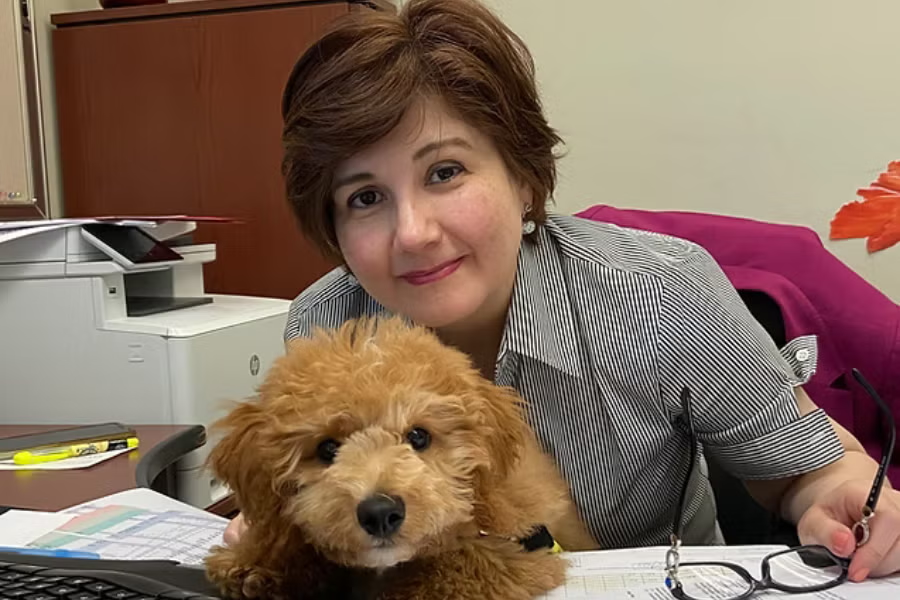Yunqing Jian and Zunyong Liu Accused of Smuggling Lethal Crop-Destroying Fungus Into U.S.; Unauthorized Research in University Lab Posed National Agricultural Threat
She carried it inside a container—seemingly ordinary, but what lay within could have spelled catastrophe on a scale almost too vast to comprehend. A highly destructive plant pathogen, one capable of eradicating staple crops like wheat, corn, and rice, was discovered in the possession of Yunqing Jian, a researcher allegedly linked to Chinese state-sponsored programs. Her mission, federal officials say, was not benign academic inquiry, but the covert acquisition and unauthorized transportation of a biohazard capable of triggering a national agricultural disaster.
According to newly released federal documents and investigative briefings, Jian, a researcher affiliated with a U.S.-based university, was working alongside Zunyong Liu, another Chinese national with a background in scientific research. Together, they allegedly conspired to conduct unauthorized experiments on a lethal fungus known for its capacity to destroy entire crop fields. The duo’s research, officials say, was not sanctioned by any American academic institution or government authority, and the scope of their intentions has set off alarm bells from Washington to the Midwest breadbasket.
The plot came to light when customs agents at the Detroit Metropolitan Airport made a routine inspection that quickly turned into a full-scale biosecurity emergency. A container discovered in Jian’s luggage contained samples of a fungus that plant pathology experts later confirmed to be a genetically volatile strain, capable of causing large-scale agricultural loss. The substance had not been declared on any customs forms, nor did Jian possess any permits for its transport.
When initially questioned, Jian reportedly downplayed the contents, claiming they were harmless research samples. However, inconsistencies in her story triggered further scrutiny. After being separated for questioning, her colleague Zunyong Liu first denied involvement—then, under pressure, confessed to participating in the transport and experimentation of the substance, admitting that they had conducted experiments in a lab without oversight or institutional approval. According to investigators, Liu also acknowledged that the research was funded, at least in part, by entities affiliated with the Chinese government.
What exactly was being studied? The fungus in question has not been publicly named due to national security protocols, but sources within the U.S. Department of Agriculture (USDA) and the FBI describe it as a “host-adapted plant pathogen with the capacity to obliterate staple grain systems in North America.” In layman’s terms: the fungus is an organism engineered or selected for traits that allow it to infect the three foundational crops that sustain the American food system—corn, wheat, and rice.
“This isn’t just about illegal lab work,” one federal official familiar with the case said on condition of anonymity. “This is about an existential threat to national food security.”
The unauthorized research reportedly took place inside a university-affiliated laboratory in the Midwest. The university, whose name is being withheld pending further investigations, has not been implicated in wrongdoing. In fact, the administration is said to be cooperating fully with authorities and was unaware that Jian and Liu had brought in unlicensed biological agents for experimentation.
Documents retrieved from the lab and from encrypted drives seized during the investigation allegedly show detailed notes on fungal genome sequences, spore proliferation under varying environmental conditions, and digital photographs of crop test plots with visible blight patterns. These documents suggest a sophisticated, prolonged research effort—possibly part of a broader initiative with geopolitical ramifications.
Agricultural experts warn that if released—accidentally or intentionally—the fungus could sweep through North American fields with devastating speed. Unlike common plant diseases that can be managed through pesticides or crop rotation, the strain in question is reportedly resistant to conventional treatments and shows unusual resilience in both hot and cold climates.
“This is not the kind of pathogen you find in nature very often,” said Dr. Olivia Reyes, a plant virologist unaffiliated with the case but familiar with similar organisms. “The fear is that this was bred or engineered for impact—not discovery.”
The implications for U.S. agriculture are staggering. Together, corn, wheat, and rice make up more than 80% of the caloric intake for millions of Americans and underpin a $200 billion domestic and export agricultural economy. Beyond food security, the economic shockwaves from such a fungal outbreak would be felt across global markets, potentially disrupting trade, increasing food prices, and destabilizing rural economies.
Federal agencies, including the Department of Homeland Security, USDA, FBI, and Customs and Border Protection, are treating the incident with utmost seriousness. A biohazard cleanup team was immediately dispatched to secure the university lab, and all fungal samples have since been transferred to a high-containment facility for analysis. Experts are currently assessing whether any spores may have been released during the course of the research.
Jian and Liu are now in federal custody, facing a growing list of charges including:
- Unauthorized possession and transportation of biological agents
- Violation of the Plant Protection Act
- Unlawful export of protected research material
- False statements to federal authorities
- Conspiracy to commit biological sabotage (pending classification)
Attorneys for Jian and Liu have yet to comment publicly on the charges. Legal experts believe the case may evolve into a landmark example of how biosecurity laws intersect with international espionage and agricultural terrorism.
Meanwhile, U.S. farming communities are responding with anxiety and anger. Across the Midwest, local agricultural cooperatives and growers’ associations are demanding transparency and reassurances from federal authorities that no contaminations have occurred. “We depend on stable soil and clean seed,” said Michael Atwood, a fourth-generation farmer in Nebraska. “The idea that someone could be doing this kind of research behind closed doors—on our soil—is terrifying.”
Beyond the fields and courtrooms, there are also broader diplomatic concerns. If the allegations of state sponsorship prove true, this could trigger a new and contentious phase in already fragile U.S.-China relations. Congressional leaders on both sides of the aisle have already called for a classified briefing on the matter, citing potential violations of international biosecurity treaties and academic integrity standards.
“This isn’t a simple lab violation,” said Senator Amanda Reyes (D-Illinois). “This is a hostile act against our food supply, our farmers, and every single family that depends on affordable, accessible groceries.”
While the courts will now determine the guilt or innocence of the individuals involved, the investigation has already ignited a broader conversation about the vulnerability of American research institutions to infiltration and misuse. Critics argue that the lack of oversight and rigorous background screening in academic laboratories makes them a soft target for exploitation.
Several universities are now re-evaluating their internal controls over sensitive biological research, especially in agricultural departments. Proposals include mandatory government registration for labs working with any high-risk crop pathogens, annual audits of foreign-funded research projects, and digital surveillance of experimental documentation.
Despite the intense national attention, what lingers most for many is a profound sense of unease. The realization that a substance capable of toppling a continent’s food system could travel inside an ordinary piece of luggage, pass through a security checkpoint, and sit—unmonitored—in a campus lab is a chilling wake-up call.
For every farmer who plants in spring, for every family who relies on grain-based meals, for every exporter whose livelihood depends on fertile fields, this case is not just about espionage or legal proceedings. It’s about trust—in our systems, in our safeguards, and in the sanctity of the land that feeds us.
And for now, that trust feels more fragile than ever.




